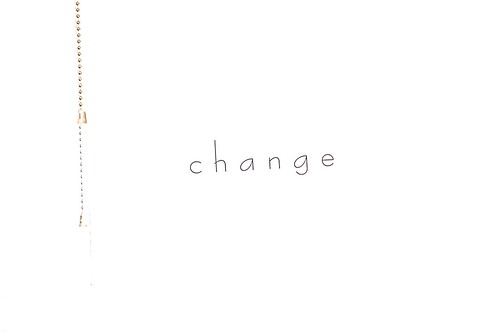Close connection / Daniela Hartmann
There's a great book called How People Learn: Brain, Mind, Experience, and School that you can read for free online. The introductory chapter aims to separate speculation from science, summarizing some of the key concepts and practices covered in the rest of the book. Part of this is a research-based list of attributes that good learning environments ought to have:
- "Schools and classrooms must be learner centered." Consider cultural differences between students, and foster a growth mindset over a fixed mindset.
- "To provide a knowledge-centered classroom environment, attention must be given to what is taught (information, subject matter), why it is taught (understanding), and what competence or mastery looks like." Avoid presenting a large number of disconnected facts, and don't design tests that favour memorization instead of understanding. Doing with understanding is more important than just hands-on doing.
- "Formative assessments—ongoing assessments designed to make students’ thinking visible to both teachers and students—are essential." Use formative assessments to allow students to experiment with and revise their understanding and track their progress.
- "Learning is influenced in fundamental ways by the context in which it takes place." Make the norm of your learning environment one that encourages risk-taking, mistakes, feedback, and revision.
Meanwhile, one of my favourite examples of game-like learning (that is, applying what we know about learning in good games to more traditional forms of education) is NYC public school (grades 6-12) Quest to Learn. Seven principles of learning are outlined in the Q School Design Pack, directly quoted below:
- It kind of feels like play: Learning experiences are engaging, learner-centered, and organized to support inquiry and creativity.
- Everyone is a participant: A shared culture and practice exists where everyone contributes, which may mean that different students contribute different types of expertise.
- Failure is reframed as iteration: Opportunities exist for students and teachers to learn through failure. All learning experiences should embrace a process of testing and iteration.
- Everything is interconnected: Students can share their work, skill, and knowledge with others across networks, groups, and communities.
- Feedback is immediate and ongoing: Students receive ongoing feedback on their progress against learning and assessment goals.
- Challenge is constant: A “need to know” challenges students to solve a problem whose resources have been placed just out of reach.
- Learning happens by doing: Learning is active and experiential. Students learn by proposing, testing, playing with, and validating theories about the world.
I'm sure you are already seeing the connections. For example, the learner-centred theme appears in both lists, formative assessments to revise thinking is similar to failure reframed as iteration, and context and practical experience are important throughout. Of course, this is no accident: The Institute of Play, the organization behind Quest to Learn and similar schools, have done a lot of careful research into both learning and games. Even without the more obvious game-based approach of Quest to Learn, game-like learning principles are useful to apply to any educational initiative.
Finally, I have also been learning more about apprenticeships, particularly for software developers. In the introduction of another freely available book, Apprenticeship Patterns, software craftsmanship is defined as a community of practice with a common set of underlying values. Many of the values listed tie again to the ideas described above. For example:
- “An attachment to Carol Dweck’s research, which calls for a ‘growth mindset.’” How People Learn calls for a community in which the growth mindset is the norm. Failure as iteration shows students that they don't need to 'get it' the first time, but instead work toward mastery.
- "A need to always be adapting and changing based on the feedback you get from the world around you." Formative assessment provides opportunity to react to feedback, and in game-like settings feedback is always coming your way.
- "A belief that it is better to share what we know than to create scarcity by hoarding it." Game-like learning encourages sharing knowledge broadly.
- "A willingness to experiment and be proven wrong." Again related to failure as iteration.
- "A strong preference for what Etienne Wenger calls ‘situated learning.’" Communities of practice are one part of Wenger's situated learning theory, which relates to the idea of learning in context and learning by doing.
I'll be delving deeper into a lot of these ideas and seeing how they will apply to the project I'm working on. Perhaps the perspective from the three different angles presented above will help you in your own projects, as well.


